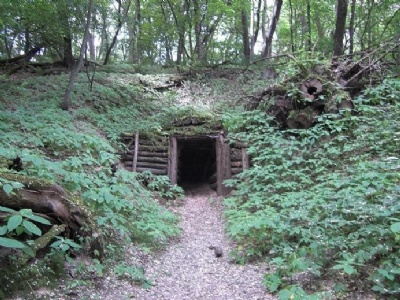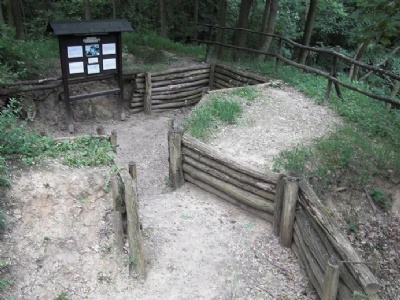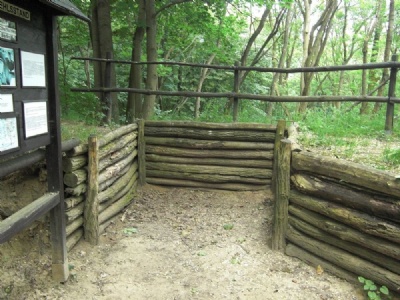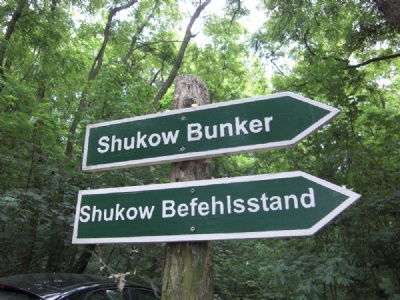Reitwein
At a forest height on the outskirts of Reitwein, the Soviet marshal Georgy Zhukov (1896 – 1974) had its headquarters during the battle of Seelow heights in April 1945.
Current status: Demolished with information board (2010).
Location: 52° 29'50.62 N 14° 34'13.27 E
Get there: Car.
Follow up in books: Roberts, Jeffrey: Stalin’s General: The Life of Georgy Zhukov (2012).




The site was long unexplored and fell into oblivion. Not until after several decades were excavations conducted on the site. It was uncovered and has now been recreated as it were in april 1945. The bunker on the other hand is not there anymore, only the entrance has been reconstructed.
Marshal Zhukov is the most decorated and respected marshal of all time in the Soviet Union (and Russia). There were, of course, political motives why Zhukov got the attention he received both during and after the war. After the war, he was appointed military commander of the Soviet-occupied part of Germany. Stalin, however, disliked Zhukov’s popularity which he saw as threat to his own position of power. Zhukov was therefore transferred to Odessa, where he was appointed commander of the Odessa military district, far from Moscow. After Stalin’s death, he was appointed defense minister.
Zhukov lived through three Soviet leaders, Stalin, Khrushchev and Brezhnev, who all understood that Zhukov could be used for their own political purposes. But at the same time he experienced their call-mindedness, as soon as his popularity grew and seen as a threat, real or unreal, he was transferred to some remote place far from the center of power. Just to be brought back at a later time. Zhukov was never a sharpened and tactical politician capable of standing on his own feet, but was dependent on the wings under whose protection he found himself. After the collapse of the Soviet Union, Zhukov (in addition to Peter (I) the great) has become a symbol of Russian nationalism. The new leaders were desperately looking for someone who could fill the emptiness Socialism had left behind. What could than be more appropriate than the man most associated in Russia with the victory over Nazi Germany. Zhukov is buried at the Kremlin Wall and on the fiftieth anniversary of the victory over Nazi Germany a statue of Zhukov, sitting on his white horse, was erected next to Red Square in Moscow.